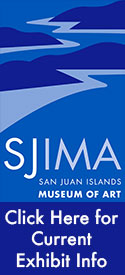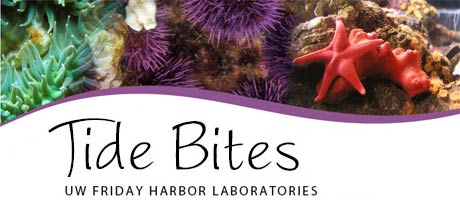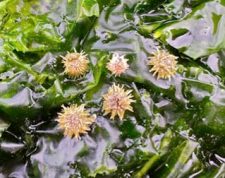FHL Tide Bites
Posted August 3, 2017 at 5:43 am by Tim Dustrude
What Happens to San Juan Sea Urchins in the Absence of Predatory Sea Stars?
– Investigating the Relationships Between Baby Green Urchins, Coralline Algae, and Crabs
by Dara Yiu
Dara is an undergraduate in UW’s School of Aquatic & Fishery Sciences. She first joined Friday Harbor Laboratories as a ZooBot student in Spring 2016, and has returned the past two summers to work as a research assistant.
Sea urchins are an important component of nearshore marine food webs. As grazers, they prevent seaweeds from becoming overabundant. They provide an important energetic link between algae and other organisms by partially digesting kelp into fecal pellets that benthic scavengers and filter feeders can consume. Urchins are also prey for invertebrates, fishes, and marine mammals. However, sea urchins are very powerful herbivores, and in large numbers can reduce subtidal kelp forests into empty landscapes known as urchin barrens. Similar to the effects of clear-cutting a terrestrial forest, this change impacts the species that depend on kelp for habitat and causes declines in species richness and diversity.
You can support the San Juan Update by doing business with our loyal advertisers, and by making a one-time contribution or a recurring donation.












No comments yet. Be the first!
By submitting a comment you grant the San Juan Update a perpetual license to reproduce your words and name/web site in attribution. Inappropriate, irrelevant and contentious comments may not be published at an admin's discretion. Your email is used for verification purposes only, it will never be shared.